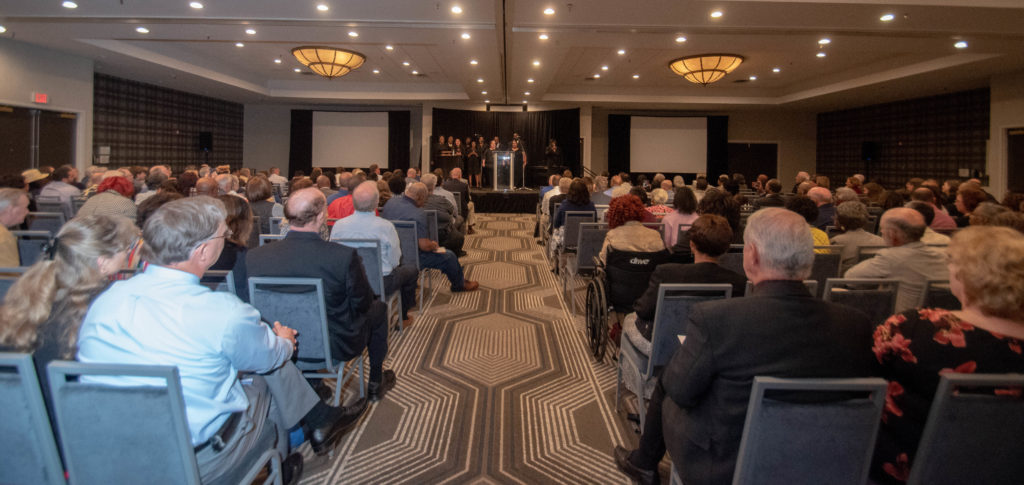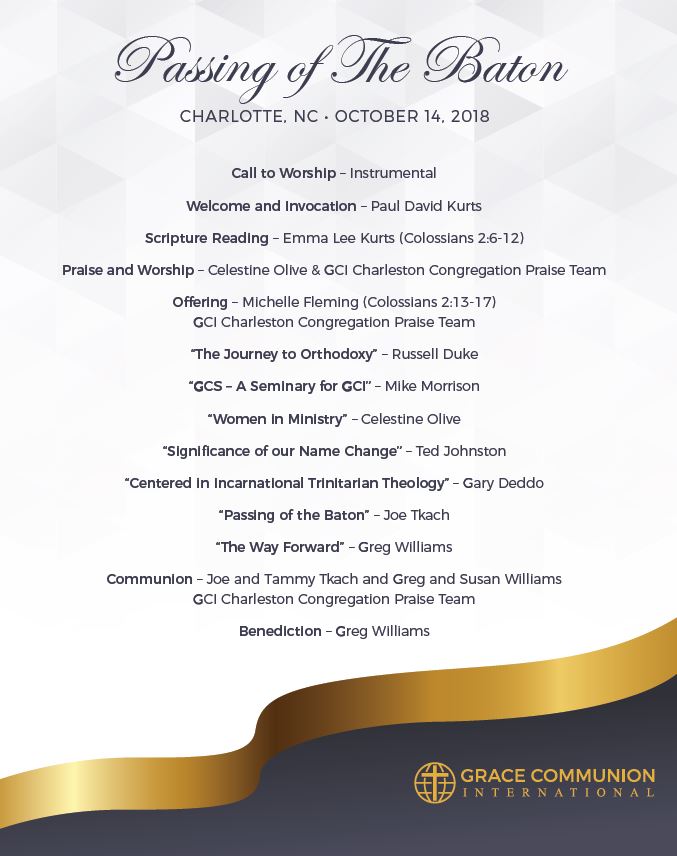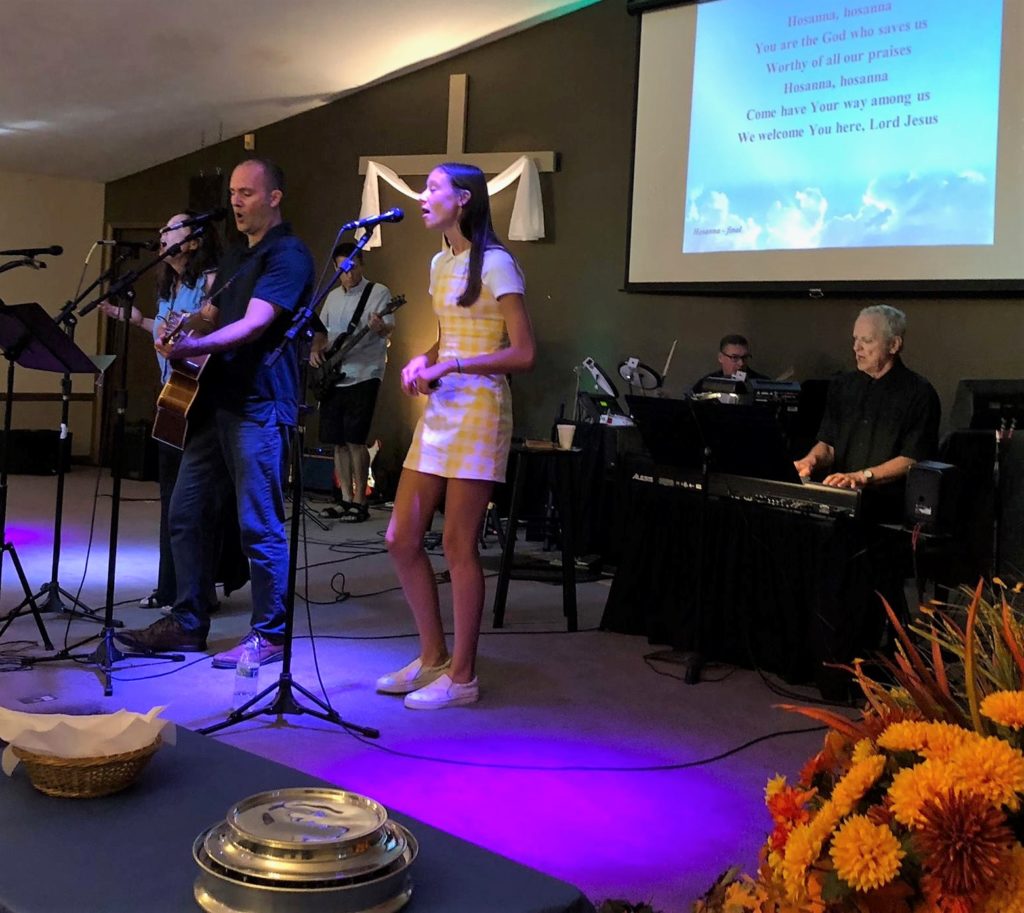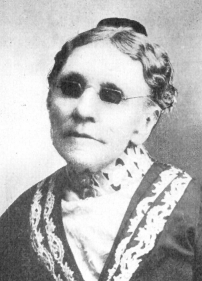“From the President” this time is written by Joseph Tkach, Chairman of the Grace Communion International Board of Directors.
Dear Brothers and Sisters,
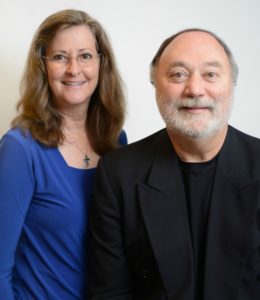
I write this letter mindful that it’s likely my last contribution to Update as a GCI employee (I retire in January). As noted in an earlier issue, I passed the GCI president baton to Dr. Greg Williams in October.
As I reflect on my years as President of our denomination, many blessings from God stand out in my memory. One has to do with our name—Grace Communion International. I think it beautifully describes our transformation as a fellowship. By the grace of God, we have become an international, grace-based denomination that shares in the communion of the Father, Son and Spirit. I have never doubted that our Triune God led us into and through the miraculous transformation that got us to this place of great blessing. My dear GCI brothers and sisters, thank you for your faithfulness in that journey. Your lives are living evidence of our transformation.

Another blessing that comes to mind is one that many of our long-time members will relate to. Over the years, we often prayed in our church services that God would reveal to us more of his truth. Well, God answered that prayer—and in dramatic fashion! He opened the eyes of our hearts and minds to understand the great depth of his love for humanity, and showed us how he is always with us and for us and, by grace, has our eternal future safe and secure.
Many of you have told me that, over the years, you heard no sermons in our fellowship on the topic of grace. I praise God that, beginning in the mid-1990s, we began to overcome that deficit. Sadly, some reacted negatively to our new emphasis on God’s grace, asking questions like, “What is all this Jesus stuff?” Our answer then (as now) was this: “We preach the good news about the one who created us, who came for us, who died for us and who saved us!”

During this Advent season, I’m focused on the wonder and glory of Jesus’ comings for our salvation: through his incarnation and birth, now by the Spirit, and in his yet-future return. It’s amazing that some who expectantly look for Jesus’ return in glory (often called the “second coming”) refuse to celebrate his first coming, his birth. Apparently they don’t realize that there would be no second coming without the first. Have they not noticed that Luke devotes an entire chapter in his Gospel to Jesus’ birth, and that the Bible nowhere devotes a whole chapter to the timing of Jesus’ return?
Following the Bible’s emphasis on the key events in the life of Jesus, in GCI we celebrate or commemorate our Lord’s incarnation, birth, life, death, resurrection and ascension. Though we can’t celebrate his return in the same way (it has not yet happened), we do, during Advent, celebrate the promise of his return, knowing that Jesus always fulfills what he has promised.
As Scripture tells us, our ascended Lord Jesus Christ is now in heaven serving as our High Priest, awaiting his return in glory. As promised, he is preparing “a place” for us (John 14:1-4). That place is the gift of eternal life with God, a gift made possible by all that Jesus has and will yet accomplish. Concerning the revealing, through the Spirit, of the nature of that gift, the apostle Paul, quoting Isaiah, wrote this:
We impart a secret and hidden wisdom of God, which God decreed before the ages for our glory. None of the rulers of this age understood this, for if they had, they would not have crucified the Lord of glory. But, as it is written, “What no eye has seen, nor ear heard, nor the heart of man imagined, what God has prepared for those who love him”—these things God has revealed to us through the Spirit. For the Spirit searches everything, even the depths of God. (1 Cor. 2:7-10, ESV)
I thank God for revealing to us the mystery of our salvation in Jesus—a salvation secured through our Lord’s incarnation, birth, life, death, resurrection, ascension and promised return. All of this is of grace—the grace of God given us in and through Jesus, by the Spirit.
Though I will soon retire from GCI employment, I will remain involved with our fellowship. I will continue serving on GCI boards in the US and UK, and on the Grace Communion Seminary board. I may also teach a course or two at GCS and do some preaching in my home congregation. My pastor Bermie Dizon has wondered aloud if I’d give monthly sermons. I joked with him that all this work doesn’t sound like retirement—it’s more like being retreaded for more miles! As we know, ministry is not a job—it’s a calling, a way of life. As long as God gives me strength, I’ll never stop ministering to others on our Lord’s behalf.
As I look back at the past several decades, in addition to wonderful memories related to GCI, I have many that are related to my family. Tammy and I have been blessed to see our two children grow up, graduate from college, find good jobs and become happily married. Our celebration of these milestones is heightened because we did not expect to reach them. As many of you know, our church formerly taught that there would be no time for such things—Jesus was returning soon, and we’d be taken to a “place of safety” in the Middle East prior to the second coming. Thankfully, God had other plans, though he does have a place of safety prepared for us all—it’s his eternal kingdom.
When I began serving as President of our denomination back in 1995, my focus was on pointing people to the supremacy of Jesus Christ. Even though I’m now retiring after over 23 years as GCI President, it is still my focus and will continue to be. By God’s grace, I will not stop pointing people to Jesus! He lives, and because he lives, we do too.
Advent and Christmas blessings from my family to yours,
– Joseph Tkach, Chairman, GCI Board of Directors
PS: With this issue we say goodbye to Ted Johnston, Update editor-publisher for the past ten years. Beginning with the next issue (January 9), the new editor-publisher will be Charlotte Rakestraw, member of our Media team. I’m grateful to all the men and women who have contributed so skillfully and faithfully to producing Update over the years, including Ted, Deb Paz, John Halford, Michael Morrison, Gary Deddo, Rick Shallenberger, Nancy Akers, Terry Akers, Janet Shay and many others. It’s been a labor of love.
Though Ted retires from GCI in January, he will continue teaching at Grace Communion Seminary and producing The Surprising God, a blog I highly recommend for its easily-digestible articles written from an incarnational Trinitarian perspective. Often quoting the Torrances and other Trinitarian theologians, the topics addressed on the blog include the Trinity, grace, our worship, final judgment, works, election, freedom, universalism and hell.











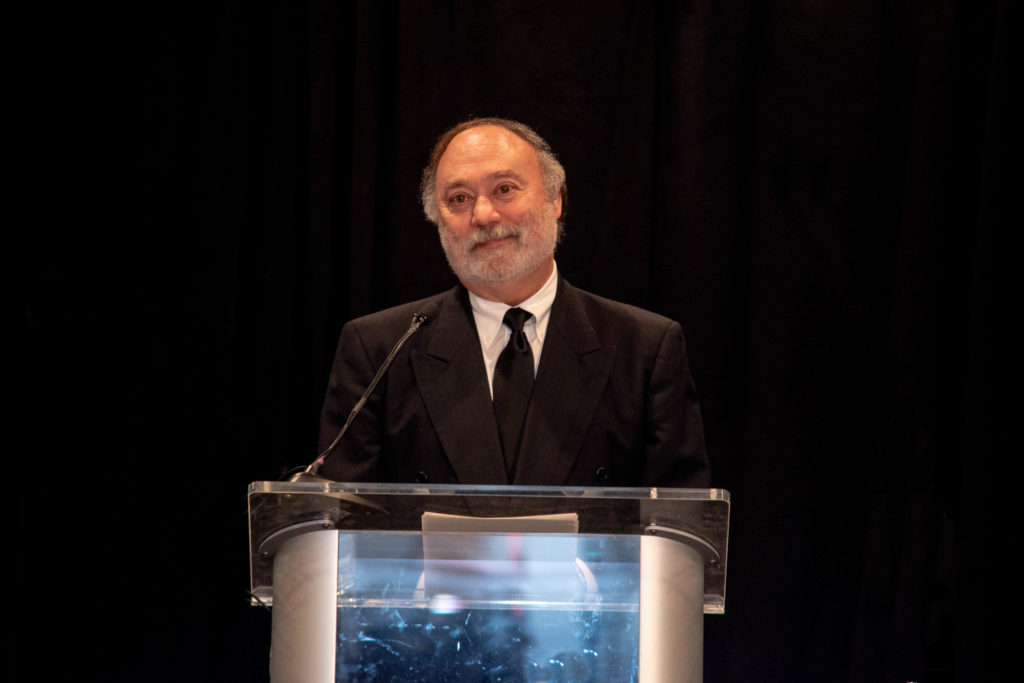
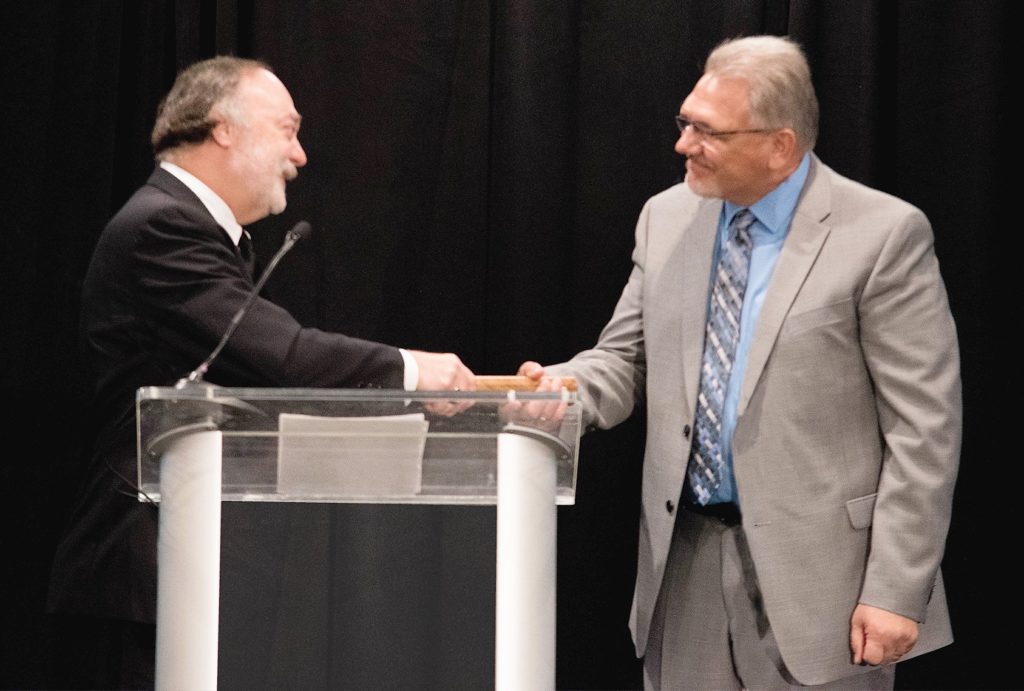

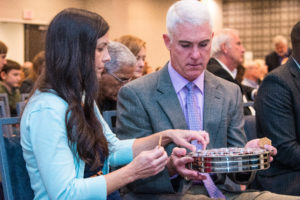 Traveling from afar, it was a real privilege to be part of the Passing of the Baton service. From the call to worship, to the benediction given by Greg Williams, it was a very inspiring service. The choir and the worship set a wonderful atmosphere where speakers outlined events and accomplishments during Dr. Tkach’s tenure. The Communion service, led by Joseph and Tammy Tkach together with Greg and Susan Williams, summed up the love, unity and peace of Christ that encompassed the whole event. —Daphne Sydney (Assistant National Director, GCI-Australia)
Traveling from afar, it was a real privilege to be part of the Passing of the Baton service. From the call to worship, to the benediction given by Greg Williams, it was a very inspiring service. The choir and the worship set a wonderful atmosphere where speakers outlined events and accomplishments during Dr. Tkach’s tenure. The Communion service, led by Joseph and Tammy Tkach together with Greg and Susan Williams, summed up the love, unity and peace of Christ that encompassed the whole event. —Daphne Sydney (Assistant National Director, GCI-Australia)